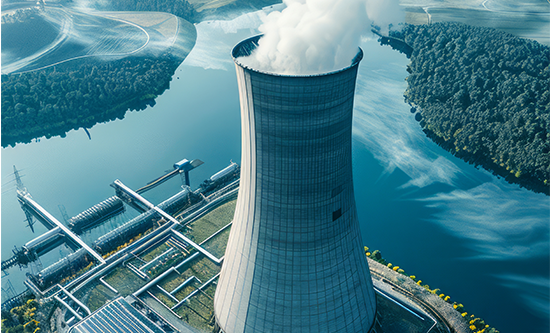Introduction
In the demanding world of nuclear technology, where safety and reliability are paramount, metal seals play a crucial role in maintaining system integrity. From traditional nuclear power plants to cutting-edge fusion reactors, these precision-engineered components are essential for containing radioactive materials, maintaining vacuum environments, and ensuring the longevity of critical equipment. This article explores the applications of metal seals in nuclear equipment, with a special focus on their use in China's Experimental Advanced Superconducting Tokamak (EAST) reactor, also known as the "artificial sun."

Metal Seals in Nuclear Applications
Metal seals are preferred in nuclear applications due to their superior performance under extreme conditions. Key advantages include:
- Radiation Resistance:
Unlike elastomeric seals, metal seals maintain their integrity under high radiation exposure. Studies have shown that metal seals can withstand radiation doses exceeding 10^9 rads without significant degradation.
- Temperature Tolerance:
Nuclear environments often involve high temperatures. Metal seals, particularly those made from nickel-based alloys like Inconel 718, can operate effectively at temperatures up to 650°C (1202°F).
- Pressure Resistance:
In reactor vessels and associated piping systems, metal seals can withstand pressures exceeding 200 MPa (29,000 PSI).
- Low Permeability:
Metal seals provide excellent barriers against gas permeation, crucial for maintaining containment in nuclear systems. Helium leak rates as low as 10^-10 cc/sec can be achieved with properly designed metal seals.
- Long-term Stability:
Metal seals exhibit minimal creep and stress relaxation over time, ensuring consistent performance over the long operational life of nuclear equipment.
Case Study: Sonkit Metal Seals in China's "Artificial Sun"
The Experimental Advanced Superconducting Tokamak (EAST) reactor, located at the Institute of Plasma Physics of the Chinese Academy of Sciences (ASIPP) in Hefei, China, represents the cutting edge of nuclear fusion research. This "artificial sun" aims to replicate the fusion process that powers our sun, potentially unlocking a virtually limitless source of clean energy.
Sonkit Industry Technology Co., Ltd. has played a crucial role in this groundbreaking project by providing high-performance metal seals for critical components of the EAST reactor. The extreme conditions within the reactor demand sealing solutions that push the boundaries of material science and engineering.
Key specifications of Sonkit's metal seals for the EAST reactor:
- Seal Type: Metal C-Ring with silver coating
- Material: Inconel 718
- Size: 2000mm (78.74 inches) in diameter
- Temperature Resistance: Up to 350°C (662°F)
- Pressure Tolerance: 100-200 MPa (14,500-29,000 PSI)
- Medium: Corrosive gases and liquids
The silver coating on the C-Ring seals serves multiple purposes:
- Enhanced sealing properties at lower loads
- Improved corrosion resistance
- Optimized thermal and electrical conductivity
Performance Data:
In rigorous testing, Sonkit's metal C-Ring seals for the EAST reactor demonstrated:
- Helium leak rates below 10^-9 cc/sec at room temperature
- Consistent performance after 1000 thermal cycles between 20°C and 350°C
- Maintained sealing integrity under simulated plasma disruption events with pressure spikes up to 150 MPa
The implementation of these high-performance metal seals has contributed significantly to the EAST reactor's ability to achieve and maintain the extreme conditions necessary for fusion research. In 2021, the reactor set a world record by maintaining a plasma temperature of 120 million degrees Celsius for 101 seconds, a crucial step towards sustainable fusion energy.
Conclusion:
Metal seals, exemplified by Sonkit's contributions to the EAST reactor, play a vital role in advancing nuclear technology. Their ability to withstand extreme temperatures, pressures, and radiation makes them indispensable in both fission and fusion applications. As we continue to push the boundaries of nuclear science, the development of advanced metal sealing solutions will remain crucial in ensuring the safety, efficiency, and feasibility of next-generation nuclear equipment.
For more information about Sonkit's metal ring seals and their applications, please visit www.sonkitsealing.com or contact us at johnny@sonkit.cn

 Language
Language
 China
China German
German French
French Italian
Italian Spanish
Spanish Turkish
Turkish Arabic
Arabic Dutch
Dutch


 Service
Hotline
Service
Hotline
